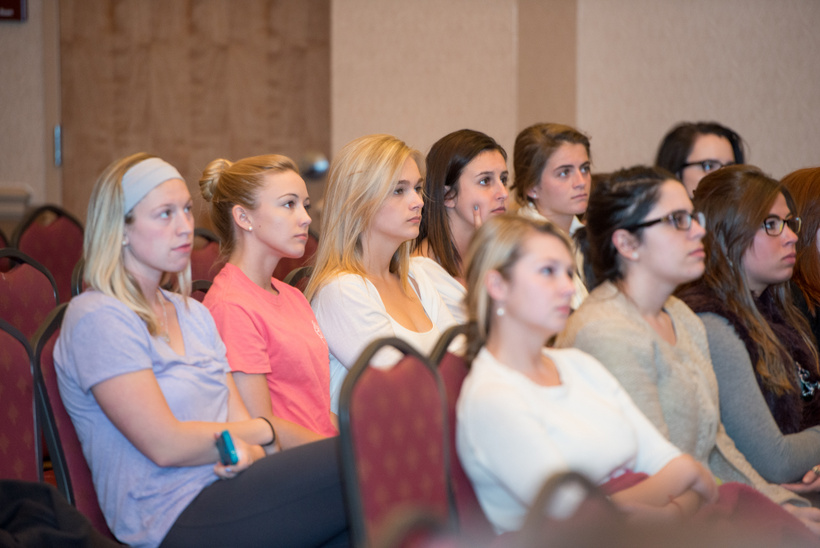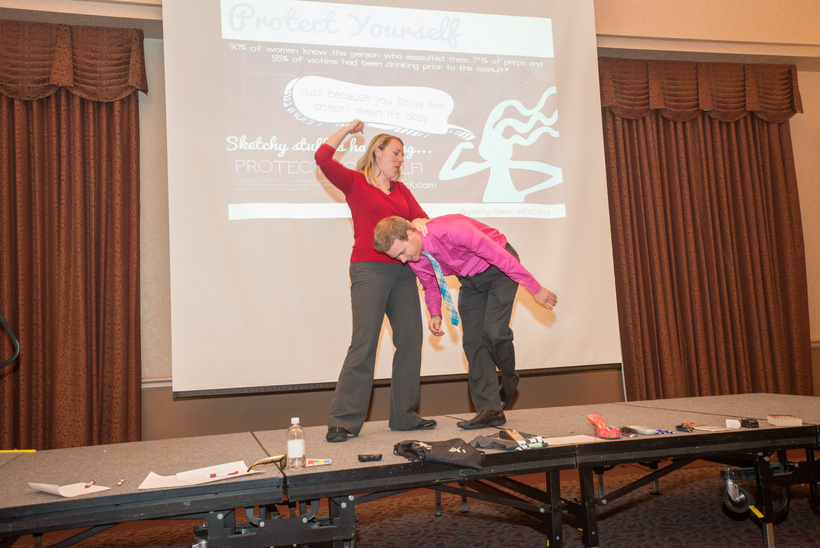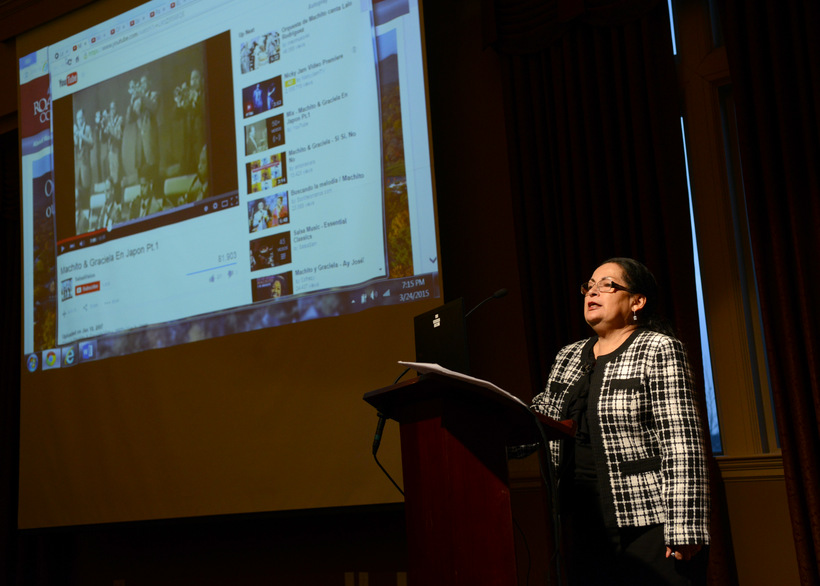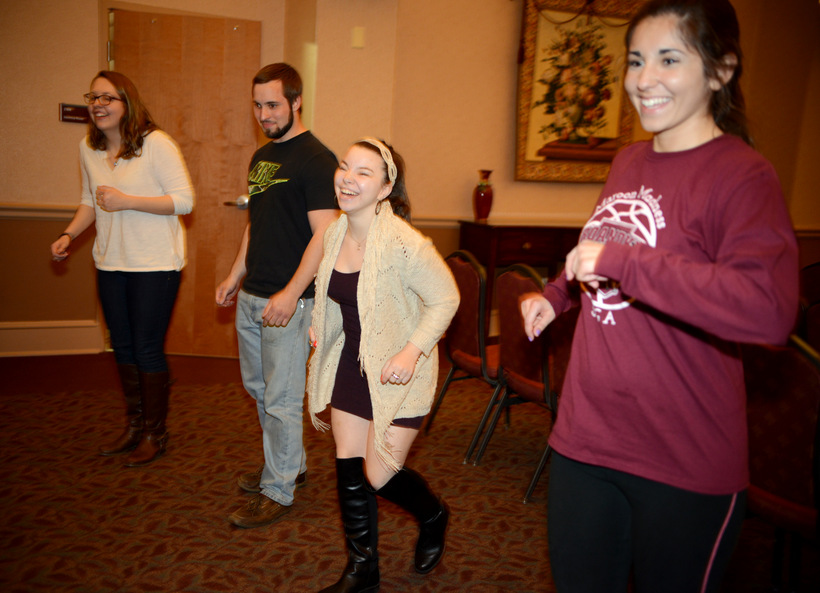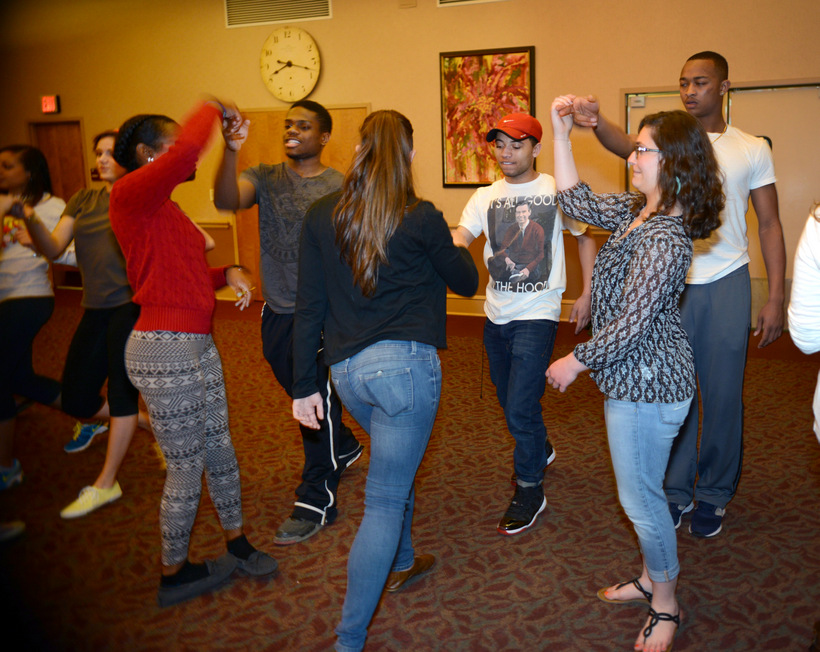 Olivia Samimy has taken advantage of every opportunity that has come her way, from fascinating research to studying away from campus. In addition to being a research assistant for Mary Crockett Hill '91, assistant professor of English, Samimy is in the Honors program and has worked for the Roanoke Review literary journal since she was a sophomore.
Olivia Samimy has taken advantage of every opportunity that has come her way, from fascinating research to studying away from campus. In addition to being a research assistant for Mary Crockett Hill '91, assistant professor of English, Samimy is in the Honors program and has worked for the Roanoke Review literary journal since she was a sophomore.
Her honors distinction project, “Women’s Self-Definition Through Poetry,” won best research paper from the Gender and Women’s Studies Program at Roanoke and was awarded best paper at James Madison University’s MadRush Conference. For that project, Samimy traveled to Emory University and conducted in-depth research on American poet Sylvia Plath.
“I was able to use her unpublished poems and personal correspondence for my research,” Samimy said. “It was an incredible experience, and I'm so lucky that the Honors Program allows us to do really hands-on research like that."
She also participated in the Lutheran College Washington Semester Program, interning in the nation’s capital at Generation Progress, a progressive think tank. There, she worked on advocating for a variety of political issues that affect young people such as gun violence, racial justice issues, immigration and student debt.
Dr. Wendy R. Larson-Harris, professor of English and communication studies, has been Samimy’s advisor all four years, and witnessed Samimy utilize everything the school has to offer.
“She’s a terrific example of how our department’s three majors [Literary Studies, Communication Studies, and Creative Writing] can fit together to give our students a great all-around experience and background to go in any direction they might want to,” Larson-Harris said. “Olivia was a literary studies major, communication studies minor, and her Honors distinction project included writing a collection of original poems, so she really has connected with everything we have to offer.”
After graduation, Samimy will pursue a Master of Library and Information Science degree at the University of Maryland-College Park.

 Olivia Samimy has taken advantage of every opportunity that has come her way, from fascinating research to studying away from campus. In addition to being a research assistant for Mary Crockett Hill '91, assistant professor of English, Samimy is in the Honors program and has worked for the Roanoke Review literary journal since she was a sophomore.
Olivia Samimy has taken advantage of every opportunity that has come her way, from fascinating research to studying away from campus. In addition to being a research assistant for Mary Crockett Hill '91, assistant professor of English, Samimy is in the Honors program and has worked for the Roanoke Review literary journal since she was a sophomore.

